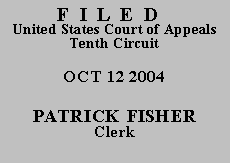

| WILLIE LEE CHILES,
Petitioner-Appellant, |
|
| v. | |
| LENORA JORDAN, Warden,
Respondent-Appellee. |
|
On May 17, 1998, Chiles was charged in state court with two criminal counts arising out of a traffic stop. The first count charged unlawful possession of a controlled drug and specifically alleged Chiles was in possession and control of "COCAINE BASE AND MARIJUANA." State ROA at 10. The second count charged Chiles with obstructing an officer in the performance of his legal duty. Nearly eighteen months later, counsel for Chiles filed a motion to quash Chiles' arrest and "suppress all evidence arising out of" the arrest. Id. at 39. After hearing arguments on the motion, the state trial court denied the motion on the first day of trial, November 17, 1999. At the conclusion of all the evidence, the jury found Chiles guilty on both counts and he was sentenced to twenty years' imprisonment on the drug count and six months on the obstruction count. The sentences were ordered to be served consecutively.
Chiles filed a direct appeal, asserting three basic arguments: (1) "fundamental error" occurred because the information charged misdemeanor possession of marijuana and felony possession of cocaine in the same count and the state trial court did not distinguish between the two in its jury instructions; (2) the state trial court erred in overruling his motion to quash his arrest and suppress evidence; and (3) trial counsel was ineffective for failing to file the motion to quash his arrest and suppress the evidence in a more timely fashion, and for failing to object to admission of the State's evidence at trial based upon the allegedly illegal traffic stop. The Oklahoma Court of Criminal Appeals (OCCA) affirmed Chiles' convictions and sentences.
Chiles filed his federal habeas action, essentially repeating the arguments asserted in his direct appeal. The district court applied the standards of review set forth in 28 U.S.C. § 2254(d) and denied Chiles' petition. With respect to Chiles' challenge to the adequacy of the drug count in the information, the district court noted, as did the OCCA, that the information mentioned marijuana and cocaine in the conjunctive, i.e., charging him with possession of both. Thus, the district court concluded the information provided Chiles with adequate notice of the charges against him as well as the sentencing range, and in turn concluded the alleged defect did not rise to the level of a federal constitutional violation. Further, the court concluded the OCCA reasonably rejected Chiles' challenge to the jury instructions on the drug count and that, in any event, those instructions did not render Chiles' trial fundamentally unfair. As Chiles was not charged in the alternative with "possession of cocaine or marijuana," but with "possession of cocaine and marijuana," his trial was not rendered fundamentally unfair when the jury was not given the alternative to assess punishment only for possession of marijuana. As for Chiles' challenge to the legality of the traffic stop and admission of the evidence obtained during that stop, the district court cited Stone v. Powell, 428 U.S. 465, 494 (1976), and concluded Chiles had a full and fair opportunity to litigate his Fourth Amendment claims in state court. Accordingly, the district court concluded Chiles was precluded from obtaining federal habeas relief on those claims. Finally, with respect to Chiles' ineffective assistance of counsel claim, the district court concluded the OCCA's resolution of the claim was neither contrary to, nor an unreasonable application of, the standards set forth in Strickland v. Washington, 466 U.S. 668 (1984).
After careful review of all of the filings and the record on appeal, we conclude the requirements for issuance of a COA have not been met. We are not persuaded that Chiles has made "a substantial showing of the denial of a constitutional right," 28 U.S.C. § 2253(c)(2), or "that reasonable jurists would find the district court's assessment of [his] constitutional claims debatable or wrong." Slack v. McDaniel, 529 U.S. 473, 484 (2000).
The request for certificate of appealability is DENIED and the appeal is DISMISSED.
Entered for the Court
Mary Beck Briscoe
Circuit Judge
*.This order is not binding precedent, except under the doctrines of law of the case, res judicata, and collateral estoppel.